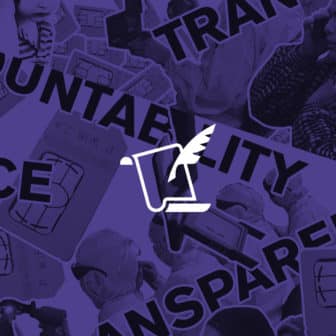Tag: Telcos

Nigerian government levies $5.2 billion fine, threatens anonymity online
MTN Nigeria was fined a record $5.2 billion for providing services to users with unregistered SIM cards, protecting their anonymity. We stand with MTN in its efforts to meet its responsibility to respect human rights.

The EU Parliament adopts ambiguous Net Neutrality legislation
Today, the European Parliament adopted the Telecoms Single Market (TSM) regulation, a piece of legislation that has the potential to bring Net Neutrality to all 28 EU member states.

Telecoms Single Market may — or may not — bring real Net Neutrality to Europe
Earlier this year, the three major European institutions reached an agreement in the Telecoms Single Market trialogue, where lawmakers made several ambitious promises. Among them was the promise to enshrine Net Neutrality rules concretely into EU law. The aim: to guarantee Europeans the “most comprehensive open internet rules,” and to prevent fragmenting equitable cross-border internet services that are in a single market. However, as it stands, the legislation is not yet clear enough to realize these grand ambitions.

Zombie cookies rise again as telcos respond to our report on tracking headers
Even George A. Romero, visionary creator of zombie movies, would scarcely believe this script. After public outcry, policy turnarounds, and regulatory scrutiny, tracking headers live on in Verizon’s networks. The company just announced a new program combining AOL’s online advertising and tracking capabilities with Verizon’s UIDH mobile tracking headers, to track users across the fixed and mobile web. We have fought to expose the use of mobile tracking headers, and made some progress in holding companies to account. The nonprofit Business and Human Rights Resource Centre invited formal responses from the companies named in our report. Let’s go through the responses, one by one.

Announcing the 2015 Heroes & Villains of Human Rights and Communications Surveillance
Today Access recognizes the individuals and groups that have either been champions of the 13 internationally recognized principles for human rights in communications surveillance (“Heroes”), or have undermined or violated those principles (“Villains”). These principles, called the International Principles on the Application of Human Rights to Communications Surveillance (or “the Principles”), have been endorsed by more than 400 civil society groups worldwide. They provide a framework for assessing whether government surveillance practices comply with international human rights obligations. Today marks the two-year anniversary of the Principles, which were publicly released on September 22, 2013.

Vodafone should come clean about Australian journalist data breach
Vodafone employees accessed journalist Natalie O’Brien’s call and text records in 2011, after she wrote reports about problems with the company’s Siebel security system. According to a leaked email, Vodafone managers asked employees to use “any means available” to uncover the source of O’Brien’s information. Vodafone commissioned an investigation by a top accounting firm, the results of which it refuses to release, while denying any “improper behavior.” However, after public pressure intensified this week, Vodafone reversed course and has asked federal police to investigate. We call on Vodafone to cooperate fully with investigators, release the independent report it commissioned, publicly explain what actions the company took after it became aware of the breach, and promise non-repetition. The company should strive to implement encryption, including end-to-end encryption, which would prevent employees from being able to access user data like this in the future.

The Rise of Mobile Tracking Headers: How Telcos Around the World Are Threatening Your Privacy

Access marks up the Myanmar government’s telecom “Masterplan”
Access responds to the Myanmar government’s call for comment on its Draft Telecommunications Masterplan, a document that lays out a plan for the country’s telecommunications regime.

Access presses telco BT to respect user privacy at shareholder meeting
At the BT (formerly British Telecom) annual general meeting in London, Access directs the following question to company’s CEO, as well as to its board: What specific next steps will BT take this year (that is, in the next 12 months) to better protect customers’ privacy and free expression rights, and to achieve greater transparency around its actions, in every country where you operate?

In good news from the evil mobile sandbox, Verizon allows opt-out of zombie tracking
Last week, Verizon Wireless announced that it would allow its users to opt-out of its zombie cookie tracking program, which it calls Relevant Mobile Advertising. Users can now log in to their account and click through a few links to force the company to stop tracking their web traffic. This is a major victory for privacy and follows an earlier pledge by AT&T in November to stop the tracking.